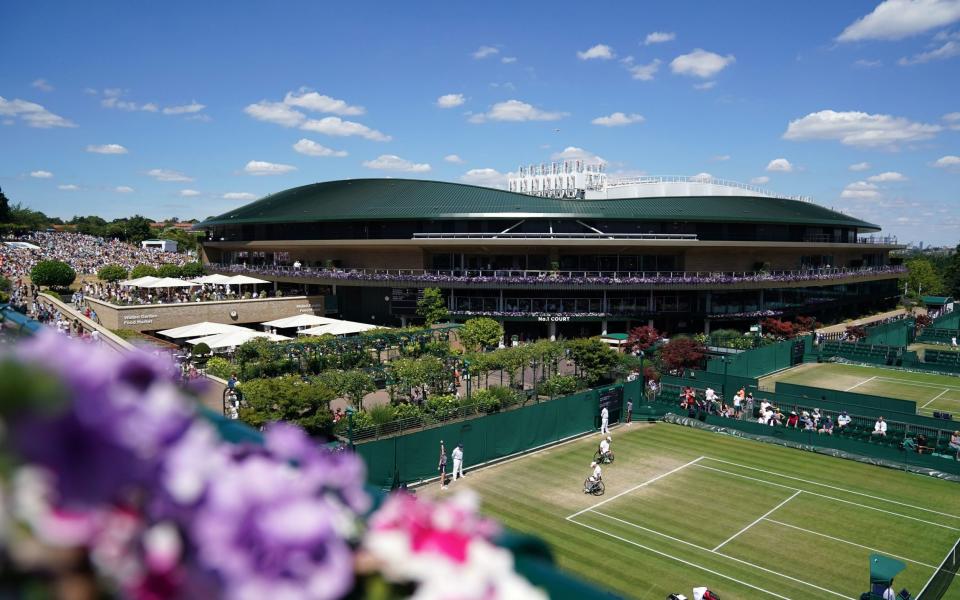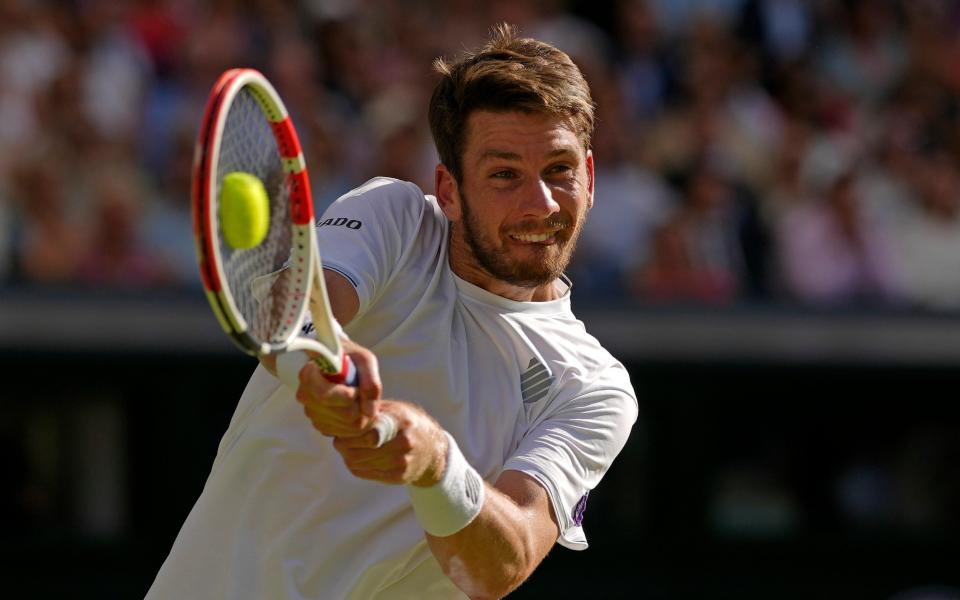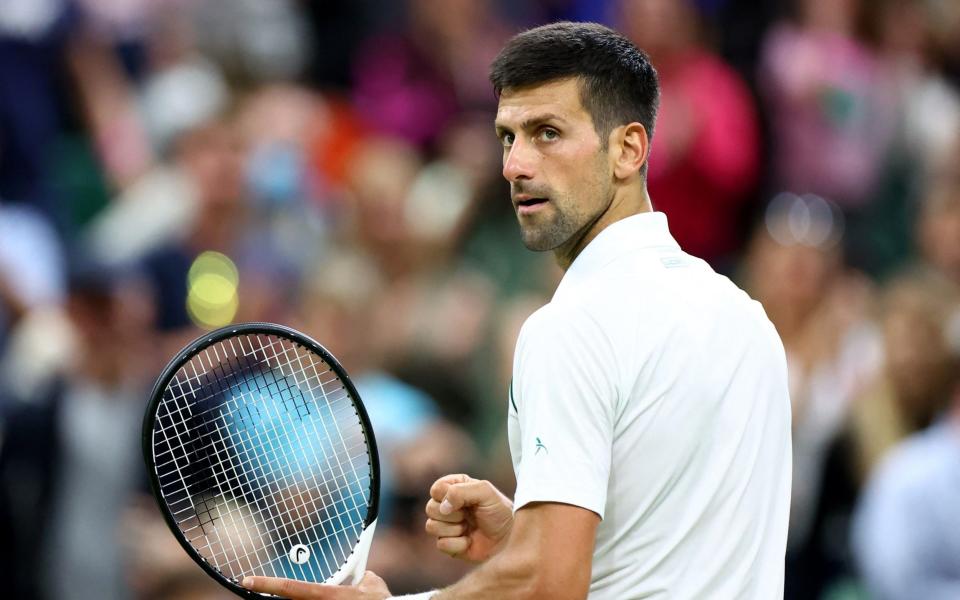The five ways to improve Wimbledon

Wimbledon 2022 finished on a high, thanks to two excellent singles finals and a classy leave-taking from the irreplaceable Sue Barker. And yet, at this first full-scale event since the pandemic, tennis folk picked up a few bum notes amid the wider harmony. So what can be done to make next year’s edition even better?
1 Find a new queue formula
Wimbledon have been up front about a shortfall in ticket sales, particularly in the first five days of the tournament when they were down by almost 20,000 compared with 2019. They have already pin-pointed the problem - a significant drop in people queuing for the cheapest ground-pass tickets.
Explanations remain more elusive and all theories will be carefully examined. The bottom line is that Wimbledon know that they can easily pre-sell the 42,000 capacity on a daily basis but they also want to maintain the tradition and accessibility of a daily walk-up queue, which amounts to around a quarter of tickets.
The question, then, is how to ensure you attract the right number of fans to fill the courts but not leave the streets and parks of SW19 filled with deeply frustrated day-trippers, especially in a world where so much more of life is conducted for maximum convenience. The all-night campers will surely remain - the first 1,500 tickets are allocated to the three main show courts - and these were easily sold out on a daily basis.
Potential wider innovations include allowing walk-up fans to leave the queue once they have scanned in and then receive an alert, rather like in some restaurants, when it is their turn to enter the grounds. A selection of tickets may also become available online on a daily basis.
2 Boost membership
Could the All England Club benefit from a new influx of members? One of the most surprising sights of the fortnight was a bank of empty seats in the members’ area, which sits at the side of the Royal Box.
This large patch of green did not even completely fill up during the concluding weekend, despite some charismatic finalists and two excellent singles matches. The AELTC insist that they are constantly adding younger people to their gene pool, but perhaps they need to accelerate the process.
What remains one of the most exclusive clubs in sport has a cap of 500 full, life or honorary members, although the numbers have been swelled to around 600 by allowing temporary playing members. To become a full or temporary member, an applicant must obtain letters of support from four existing full members.
On the eve of the men’s semi-finals, it emerged that British No 1 Cameron Norrie has yet to be admitted. Given that Norrie is a top-10 player whose name was put forward by two-time champion Andy Murray, you might think that this would be a no-brainer.

3 Solve Russia issue
During his speech at Sunday night’s Champions Dinner, All England Club chairman Ian Hewitt said that the quality of the past fortnight’s matches had “justified Wimbledon’s position at the peak of the game”. He then added the pointed addendum: “Even if our friends at the ATP and WTA didn’t think that we were worthy of ranking points.”
By responding to the LTA and Wimbledon’s Russia ban quite so severely (the WTA have also dished out fines of £827,000) the two tours have added to the sense of a sport in chaos.
To single out one absurd consequence among many, Novak Djokovic has dropped to No 7 in the world, and might even be in danger of missing the ATP finals. It seems depressingly plausible that the conflict in Ukraine could still be rumbling on next summer and that the ramifications for sport will remain.
Senior figures within the Olympic movement have indicated that they do not expect Russian athletes to compete in Paris, with tennis, judo and cycling currently the only Olympic sports allowing Russians to compete. We can only hope by next year that tennis will have resolved their current mess.
4 Scheduling and earlier Centre Court starts
Plenty of questionable calls here, including Katie Boulter’s banishment to Court No 2 for her third-round match against Harmony Tan, and some hokey-cokey with the roof.
More tellingly, Andy Murray and Djokovic were among those players to feel that everything was running on too late, with six out of the first seven evenings finishing under lights on an indoor grass court.
On a day when two men’s contests are scheduled alongside one women’s – such as the first Monday, Wednesday or Friday – you are generally looking at a 10.30pm finish if you’re lucky. Especially with the ever-growing length of matches and all the extra faffing, which now includes a commitment to a 20-minute break between one match and the next.

Djokovic wants the club to start matches earlier than 1.30pm on Centre next year and claims the majority of the players would support his stance.
The key point was no so much the time of day - top players are well used to late night finishes - but the significantly different playing conditions according to whether the Centre Court roof is open or not. The AELTC say that they take account of the players’ feelings and, with these concerns about much more than simply convenience, this is one area where the club must listen carefully, regardless of any competing wishes of broadcasters.
5 Staff concerns… and life after Sue
You probably would not have noticed as a punter, but there were more signs of strain among Wimbledon’s staff than in most previous years. Stories appeared on the middle weekend of hospitality and housekeeping employees being abruptly fired.
Then, a few days later, a brawl broke out between three teenage security guards. Meanwhile, the experienced drivers who ferry players around were apparently disgruntled to hear that certain privileges – such as reserved seats on No 1 Court – are to be rescinded. Covid itself also remained ever-present, with outbreaks among the line-judges and the stewards.
Wider staff shortages across the economy could also ripple up to Wimbledon, especially in relation to wage costs. The most sought vacancy at SW19, however, is clear and you can certainly expect the All England Club to take a keen interest in the BBC’s succession planning for broadcasting legend Barker.

